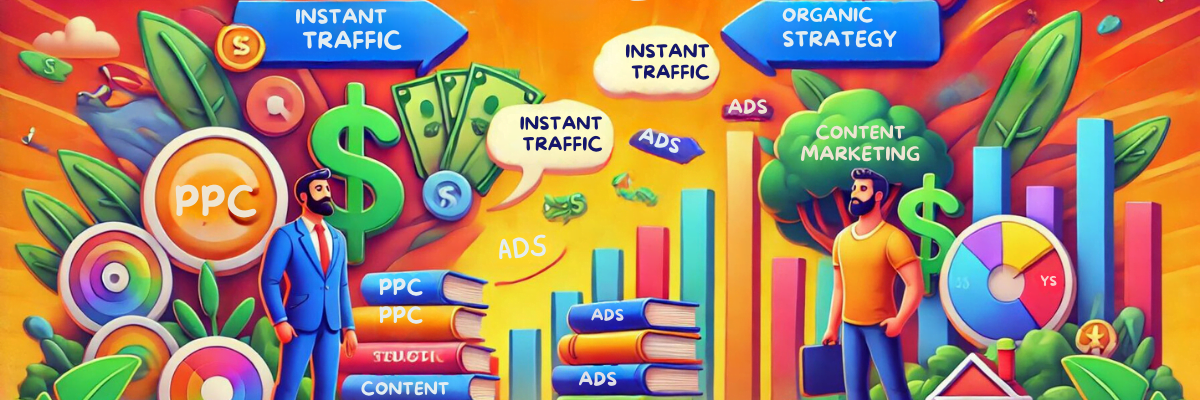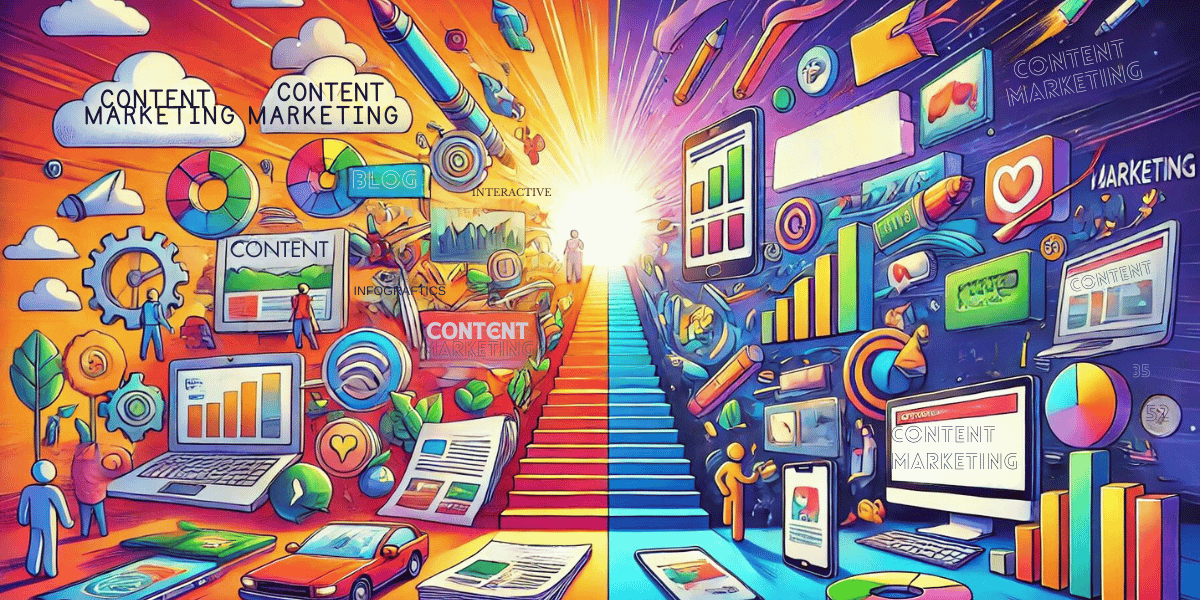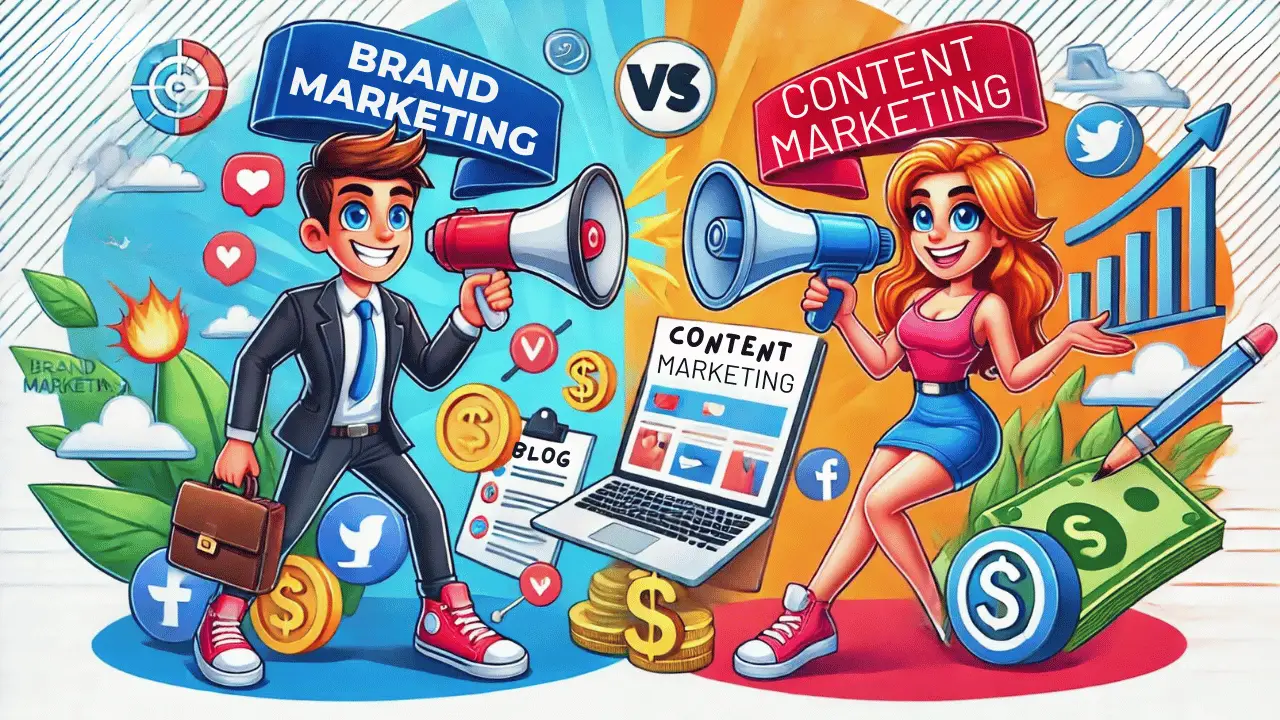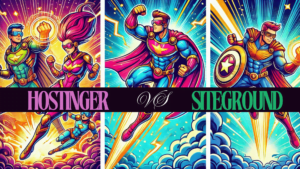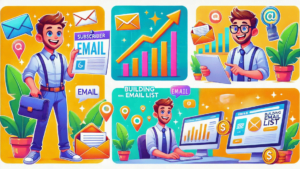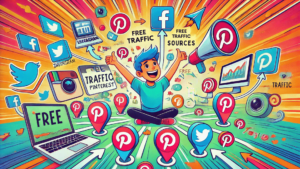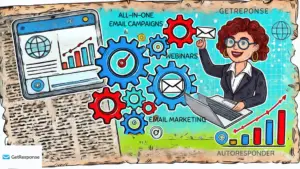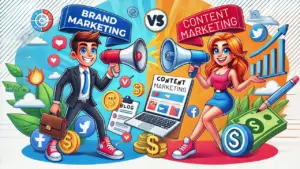PPC vs Content Marketing: Which Strategy Reigns Supreme in 2024?
In the ever-competitive world of digital marketing, businesses face a crucial question: PPC vs content marketing—which strategy delivers the best results? It’s a classic battle of short-term gains versus long-term growth, instant traffic versus organic authority. Both have their strengths, both have their weaknesses, and both have the potential to be game-changers for your business.
But here’s the catch: It’s not always a clear-cut decision. Depending on your goals, budget, and industry, one approach might outshine the other—or maybe you need a combination of both. In this deep dive, we’ll break down the key differences between PPC (pay-per-click) and content marketing, explore their pros and cons, and help you determine which strategy is best for your business.
The Basics: Understanding PPC and Content Marketing
Before we jump into the comparison, let’s clarify what we’re talking about when we refer to PPC and content marketing.
What is PPC (Pay-Per-Click) Marketing?
PPC is a form of paid advertising where you bid on keywords and pay every time someone clicks on your ad. The most common platforms for PPC include Google Ads, Bing Ads, and social media channels like Facebook, Instagram, and LinkedIn.
The beauty of PPC lies in its immediacy. You set up a campaign, define your target audience, and within minutes, your ads can start driving traffic to your site. However, this traffic comes at a cost, and that cost can vary significantly depending on your industry and competition.
What is Content Marketing?
Content marketing is a long-term strategy focused on creating and distributing valuable, relevant, and consistent content to attract and engage a target audience. The ultimate goal is to drive profitable customer actions. Content can come in many forms: blog posts, videos, infographics, eBooks, podcasts, and more.
Unlike PPC, content marketing isn’t about paying for traffic—it’s about earning it. Through high-quality content and strategic SEO, you attract visitors organically. While content marketing requires time and effort to see results, it offers lasting benefits that can compound over time.
PPC vs Content Marketing: The Key Differences
To make an informed decision about which strategy to pursue, let’s break down how PPC and content marketing compare across several critical factors.
1. Speed of Results
- PPC: If you need traffic yesterday, PPC is your go-to. Once your campaign is live, you can see results almost immediately. This is why PPC is popular for time-sensitive promotions like product launches, seasonal sales, or limited-time offers. However, once you stop paying for ads, the traffic stops too.
- Content Marketing: Content marketing is more of a slow burn. It takes time to create content, get it indexed by search engines, and build organic traffic. Depending on the competitiveness of your industry and keywords, it could take months to see significant results. But once your content starts ranking, it can continue driving traffic for years without additional investment.
Verdict: If you’re looking for quick wins, PPC is the clear choice. For long-term growth and sustained traffic, content marketing is where it’s at.
2. Cost and Budget Considerations
- PPC: The biggest downside of PPC is the cost. You’re essentially renting traffic, and the costs can quickly add up, especially in competitive industries. Depending on the keywords you’re targeting, you could be paying anywhere from a few cents to $50 (or more) per click. If your campaign isn’t optimized, you could end up burning through your budget with little to show for it.
- Content Marketing: Content marketing has a different cost structure. While you may need to invest in content creation (whether that’s hiring writers, video producers, or graphic designers), the content itself has a long shelf life. Once it’s published, it continues to generate traffic and leads without any ongoing costs. Over time, content marketing tends to be more cost-effective than PPC.
Verdict: PPC can be a great investment for short-term gains but can become costly over time. Content marketing, while slower to take off, offers more sustainable returns.
3. Targeting and Audience Precision
- PPC: One of the biggest advantages of PPC is the ability to hyper-target your audience. You can choose who sees your ads based on demographics, interests, behavior, and even past interactions with your brand. This precision targeting is particularly valuable for businesses with a clear understanding of their buyer personas.
- Content Marketing: Content marketing relies more on attracting your audience organically. While you can tailor your content to specific segments of your audience, you don’t have the same level of control over who sees your content. SEO plays a significant role here, but it’s less precise than the targeting options offered by PPC platforms.
Verdict: If laser-focused targeting is a priority, PPC gives you more control over who sees your message.
4. Trust and Credibility
- PPC: While PPC ads can drive instant traffic, they don’t necessarily build trust. Consumers know that ads are paid placements, and in some cases, they might be skeptical of clicking on them, especially if they don’t recognize the brand.
- Content Marketing: Content marketing is all about earning trust. By providing valuable information, answering questions, and offering solutions, you position your brand as an authority in your niche. When people find your content organically, they’re more likely to trust it because it wasn’t pushed on them—it was something they discovered while seeking answers.
Verdict: For building trust and credibility, content marketing wins hands down.
5. Scalability
- PPC: PPC is highly scalable. If you’re seeing positive returns, you can simply increase your budget to scale your campaigns. The challenge is maintaining profitability as you scale, especially as you compete for more expensive keywords.
- Content Marketing: Scaling content marketing is more labor-intensive. You need to consistently produce high-quality content, optimize it for SEO, and promote it across multiple channels. However, once you’ve established a content production process, the returns can grow exponentially.
Verdict: PPC is easier to scale quickly, but content marketing can offer exponential growth once your content gains traction.

When to Choose PPC Over Content Marketing (and Vice Versa)
Now that we’ve covered the key differences, let’s explore scenarios where one strategy might make more sense than the other.
Choose PPC If:
- You Need Immediate Traffic: Whether it’s a product launch, a time-sensitive sale, or a quick brand awareness campaign, PPC is your best bet for instant visibility.
- You Have a Flexible Budget: If you have the resources to invest in paid ads and the ability to adjust your budget based on performance, PPC can yield fast results.
- Your Sales Funnel is Optimized: PPC is most effective when you have a well-oiled sales funnel in place. If your landing pages convert well, and you have a clear follow-up process, PPC can drive quick sales.
Choose Content Marketing If:
- You’re in It for the Long Haul: Content marketing is all about playing the long game. If you’re focused on building a brand, establishing authority, and driving sustainable organic traffic, content marketing is the way to go.
- You Want to Build Trust and Authority: If you’re looking to position your brand as a thought leader in your industry, content marketing is unmatched. Over time, your content can become a valuable resource for your audience.
- You Have a Limited Budget: Content marketing might require upfront investment, but once your content is live, it can drive traffic and leads for years with minimal ongoing costs.
The Hybrid Approach: Combining PPC and Content Marketing
Here’s the thing—PPC vs content marketing doesn’t have to be an either/or decision. In fact, some of the most successful digital marketing strategies combine both approaches. Here’s how you can use them together for maximum impact:
- Use PPC to Promote Your Best Content: One effective strategy is to use PPC to drive traffic to your top-performing content. For example, you could promote a high-value blog post or a lead magnet via Google Ads or Facebook Ads. Once visitors are on your site, you can nurture them with additional content and lead them further down your sales funnel.
- Leverage Retargeting: Retargeting ads are a great way to re-engage visitors who’ve already interacted with your content. For example, if someone reads a blog post but doesn’t sign up for your email list, you can use retargeting ads to bring them back with a relevant offer.
- Test and Optimize with PPC, Scale with Content: You can use PPC to test different offers, headlines, and messaging. Once you find what works, you can incorporate those learnings into your content strategy, creating evergreen content that ranks organically.

The Future of PPC and Content Marketing
As we look ahead to 2024 and beyond, both PPC and content marketing will continue to play vital roles in digital strategies. However, they’ll evolve in response to new technologies, changing consumer behaviors, and shifting industry trends.
For PPC, expect more automation and AI-driven optimization. Platforms like Google Ads are already using machine learning to improve ad targeting and bidding strategies. On the content side, we’ll see more emphasis on interactive, personalized, and multimedia content, as well as content that aligns with emerging technologies like voice search and AI.
Final Thoughts: PPC vs Content Marketing—Which Should You Choose?
So, which strategy reigns supreme in the PPC vs content marketing debate? The answer depends on your goals, resources, and timeline.
- If you need quick results and have the budget to invest, PPC is a powerful tool that can drive instant traffic and conversions.
- If you’re focused on building a long-term brand, earning trust, and driving sustainable organic traffic, content marketing should be your priority.
Ultimately, the best approach is often a combination of both. By leveraging the immediacy of PPC and the lasting impact of content marketing, you can create a balanced strategy that delivers both short-term wins and long-term growth.
